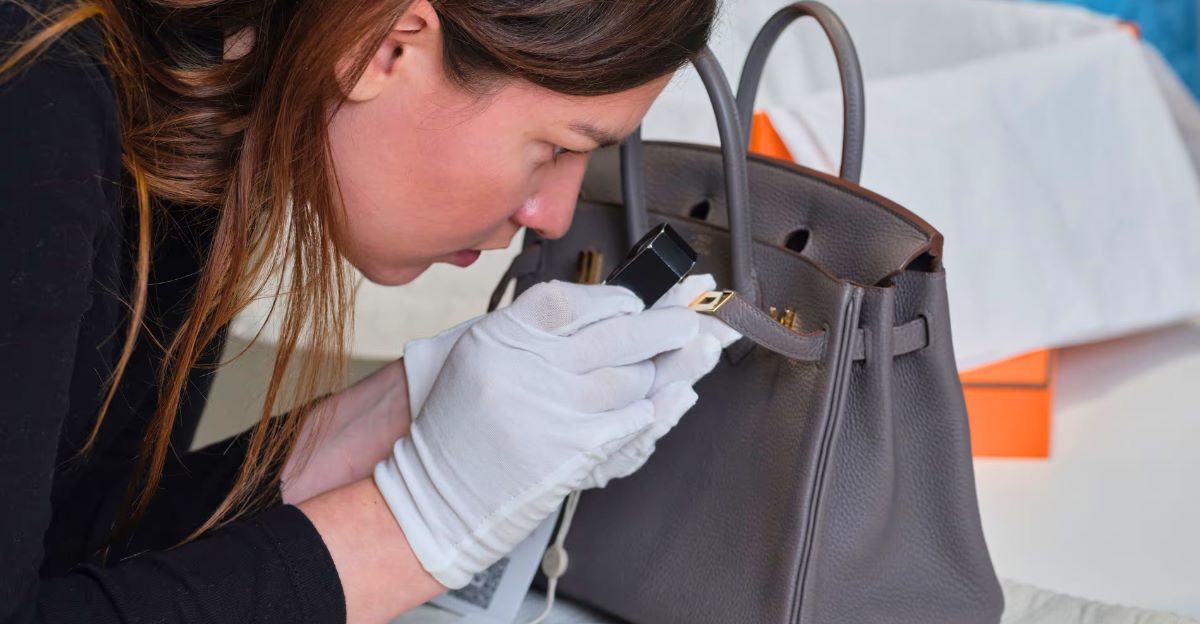
Hermès, the iconic French luxury brand renowned for its Birkin bags, is navigating a multifaceted crisis that has captured global attention. The brand faces legal challenges, market controversies, and cultural shifts testing its longstanding reputation for exclusivity and craftsmanship. Central to the turmoil is a class-action lawsuit in the United States, where plaintiffs allege that Hermès engages in “tying” practices requiring customers to purchase additional Hermès products to qualify for a chance to buy a Birkin bag. This practice, they argue, violates antitrust laws by creating an unfair market for luxury goods.
Compounding the legal issues is the emergence of affordable Birkin-inspired bags, notably the “Wirkin” sold by Walmart. Priced between $60 and $100, these bags mimic the Birkin’s design and have gone viral on social media platforms like TikTok, sparking debates about accessibility, elitism, and the value of luxury craftsmanship. While Hermès has remained silent on the matter, the proliferation of such dupes challenges the brand’s aura of exclusivity. These developments occur against broader industry trends, including increased scrutiny of luxury brands’ ethical practices and a growing demand for transparency and inclusivity. As Hermès confronts these challenges, the outcome may redefine its business practices and influence the future dynamics of the luxury fashion industry.
The Class-Action Lawsuit: Allegations of Antitrust Violations

In March 2024, Hermès was hit with a federal class-action lawsuit in California, accusing the company of antitrust violations related to selling its coveted Birkin bags. Plaintiffs allege that Hermès requires customers to purchase additional products, such as scarves, jewelry, and shoes, to qualify for a Birkin bag. This practice, known as “tying,” is argued to be an illegal manipulation of market power, forcing consumers to spend more than intended and limiting access to the bags.
Hermès has defended its sales strategy, asserting that the exclusivity of the Birkin bag is integral to its brand identity and that no formal policy mandates additional purchases. The company contends that the limited availability of Birkins is due to their meticulous handcrafted production process, not deliberate scarcity. The lawsuit seeks to represent a broader class of U.S. consumers who have faced similar purchasing hurdles, potentially leading to significant changes in how luxury goods are marketed and sold. If successful, the case could set a precedent affecting Hermès and the luxury industry.
The “Wirkin” Phenomenon: Affordable Dupes Stir Debate
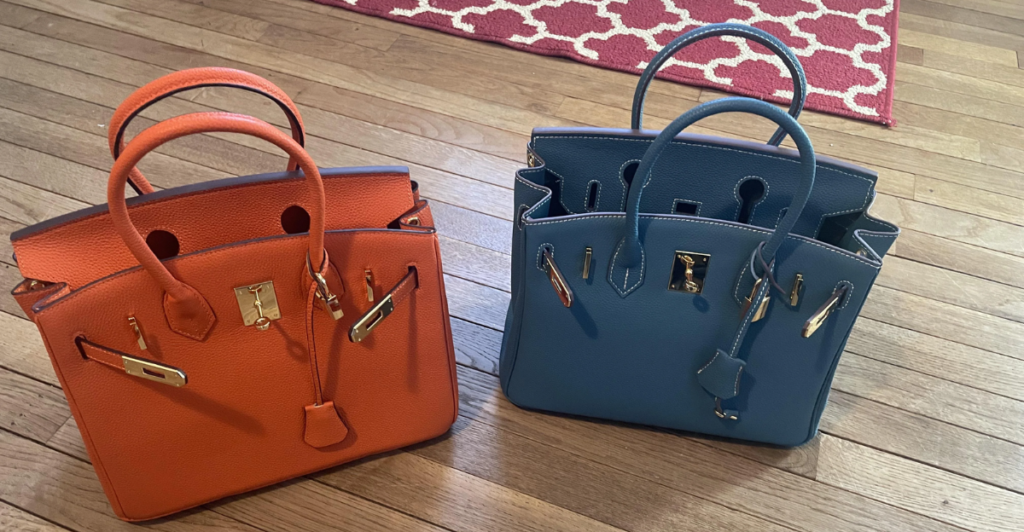
In late 2024, Walmart began selling a handbag, the “Wirkin,” a budget-friendly alternative to the Hermès Birkin, priced between $60 and $100. The bag quickly gained popularity on social media platforms, particularly TikTok, where influencers showcased the Wirkin as an accessible fashion statement. The Wirkins design resembles the Birkin, featuring similar buckles and handles, leading to discussions about intellectual property and the ethics of fashion dupes. While some consumers praised the affordability and style of the Wirkin, others criticized it for undermining the craftsmanship and exclusivity associated with the original Birkin.
Given Birkin’s protected design elements, legal experts suggest that Hermès may have grounds for trademark infringement claims. However, as of now, Hermès has not publicly commented on the Wirkin, and Walmart has removed the product from its website, possibly in response to legal pressures. The Wirkin episode highlights the tension between luxury brands’ desire to maintain exclusivity and consumers’ growing demand for affordable fashion alternatives.
Hermès’ Sales Strategy: Exclusivity or Elitism?

Hermès’s approach to selling Birkin bags has long been shrouded in mystery and exclusivity. The bags are not displayed in stores or available online; they are offered to select customers, often based on their purchase history and relationship with sales associates. This strategy has been criticized as elitist, with allegations that it creates an artificial scarcity to drive demand. The recent lawsuit accuses Hermès of using this exclusivity to coerce customers into buying additional products, a claim the company denies.
Hermès argues that Birkins’ limited availability is due to the bags’ handcrafted nature, with each bag requiring significant time and skill to produce. The company maintains that this commitment to quality, rather than deliberate scarcity, is the reason for the bags’ exclusivity. The debate raises questions about maintaining brand prestige and ensuring fair consumer practices in the luxury market.
Legal Implications: Antitrust Laws and the Luxury Market

The class-action lawsuit against Hermès centers on alleged violations of U.S. antitrust laws, particularly the Sherman Act, which prohibits monopolistic practices and unfair restraints on trade. The plaintiffs argue that Hermès’ sales strategy constitutes an illegal “tying arrangement,” forcing consumers to purchase unwanted products to access the Birkin bag.
If the court finds Hermès’ practices to violate antitrust laws, it could have significant ramifications for the luxury industry, where exclusivity and selective sales are common. Brands may need to reevaluate their sales strategies to ensure compliance with legal standards and avoid similar legal challenges. The case also highlights the evolving legal landscape surrounding luxury goods, where traditional notions of exclusivity are increasingly scrutinized under consumer protection and competition laws.
The Role of Social Media: Amplifying the Controversy

Social media platforms have played a pivotal role in amplifying the controversies surrounding Hermès. The viral spread of the Wirkin bag on TikTok and other platforms brought widespread attention to the issue of luxury dupes and the accessibility of high-end fashion.
Additionally, online communities have dissected Hermès’ sales practices, with users sharing experiences and strategies for obtaining a Birkin bag. This transparency has challenged the brand’s traditional aura of mystery and control over its narrative. The influence of social media underscores the shifting power dynamics in the fashion industry, where consumer voices and viral trends can significantly impact brand perception and policy.
Ethical Considerations: Animal Welfare and Sustainability
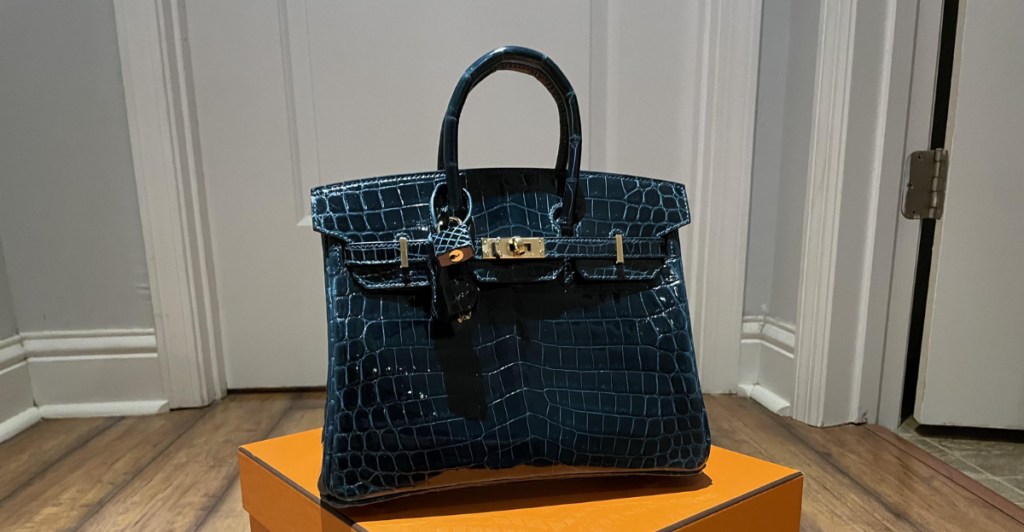
Hermès has faced criticism over the years regarding its use of exotic animal skins, particularly in producing certain Birkin bags. In 2015, Jane Birkin requested her name be removed from the crocodile-skin version of the bag due to concerns about animal welfare.
While Hermès addressed these concerns by assuring better practices, the controversy highlighted the ethical dilemmas in luxury fashion. As consumers become more conscious of sustainability and animal rights, luxury brands are under increasing pressure to adopt ethical sourcing and production methods. The crisis may prompt Hermès and similar brands to examine their practices further and align with evolving consumer values.
Market Impact: Navigating a Luxury Slowdown
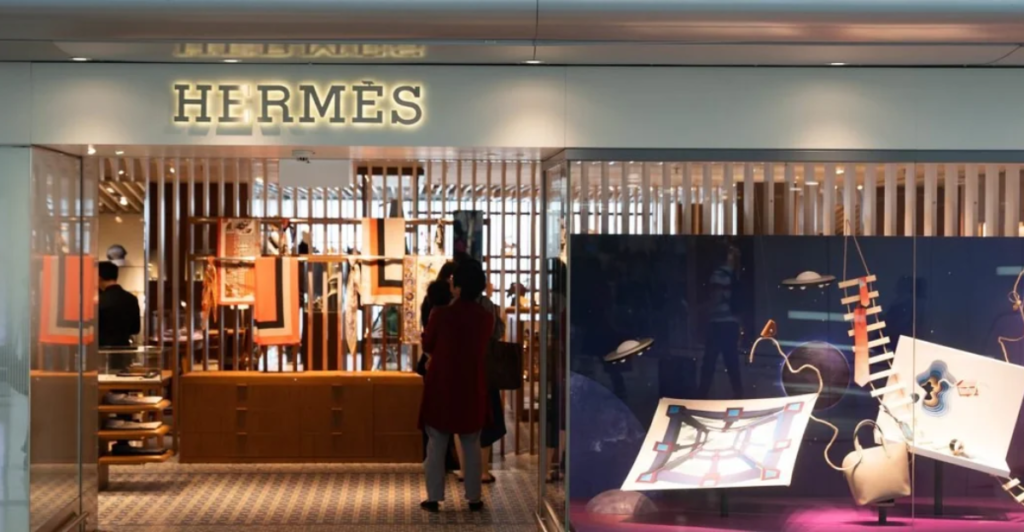
Despite the controversies, Hermès has shown resilience amid a broader slowdown in the luxury market. The brand’s focus on craftsmanship, limited production, and diversification into other product categories has helped sustain its performance.
However, the ongoing legal challenges and public scrutiny could affect consumer perception and demand. The lawsuit’s outcome and the brand’s response to the Wirkin phenomenon may influence its market position and strategy. Luxury brands must balance exclusivity with accessibility and ethical considerations to maintain relevance in a changing market landscape.
Industry-Wide Implications: A Call for Transparency
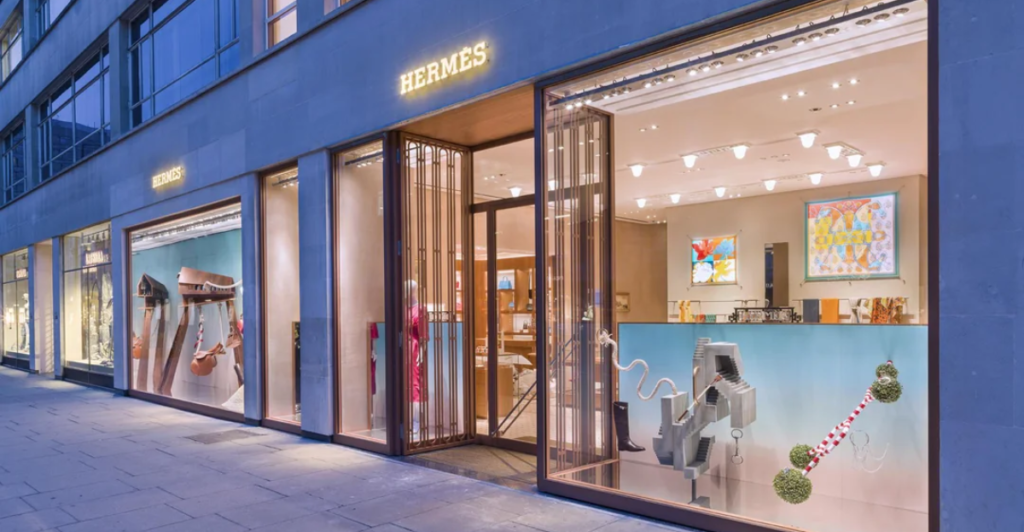
The issues facing Hermès reflect broader challenges in the luxury fashion industry, including the need for greater transparency, ethical practices, and consumer inclusivity. As consumers demand more accountability, brands may need to reevaluate traditional practices, prioritizing exclusivity over fairness.
The Hermès case could catalyze industry-wide changes, prompting discussions about sales strategies, ethical sourcing, and the role of consumer engagement in shaping brand policies. Ultimately, the luxury market may need to adapt to a new paradigm where exclusivity is balanced with ethical responsibility and consumer empowerment.
Fashion and Beauty: How the Crisis Reverberates Across Style Culture
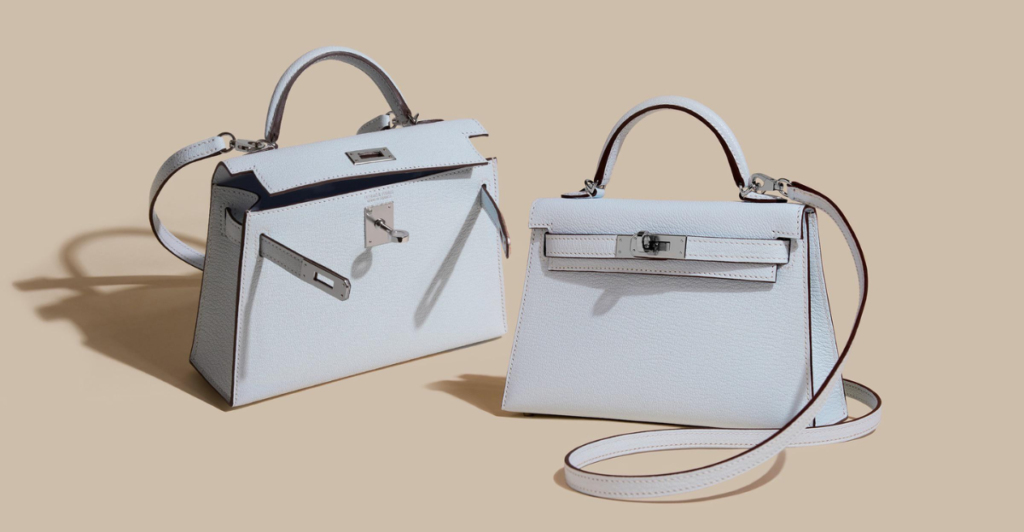
Hermès’ current crisis has implications far beyond luxury handbags; it touches the core of modern fashion and beauty culture. The exclusivity of the Birkin has long influenced industry trends, with its silhouette, colorways, and aura of status permeating both high fashion and mass-market products. The brand’s legal troubles and the viral rise of accessible alternatives like the “Wirkin” bag signal a growing shift in consumer values: style and self-expression are beginning to trump brand prestige.
This democratization is also evident in the beauty space. Influencers replicate “Birkin glam” on a budget, while beauty brands move toward more inclusive and transparent marketing strategies. Social media has eroded traditional fashion gatekeeping, empowering a new generation of consumers who prioritize authenticity and accessibility. Hermès faces public and legal scrutiny, symbolizing a broader reckoning: luxury must now coexist with ethics, inclusion, and digital-era adaptability.